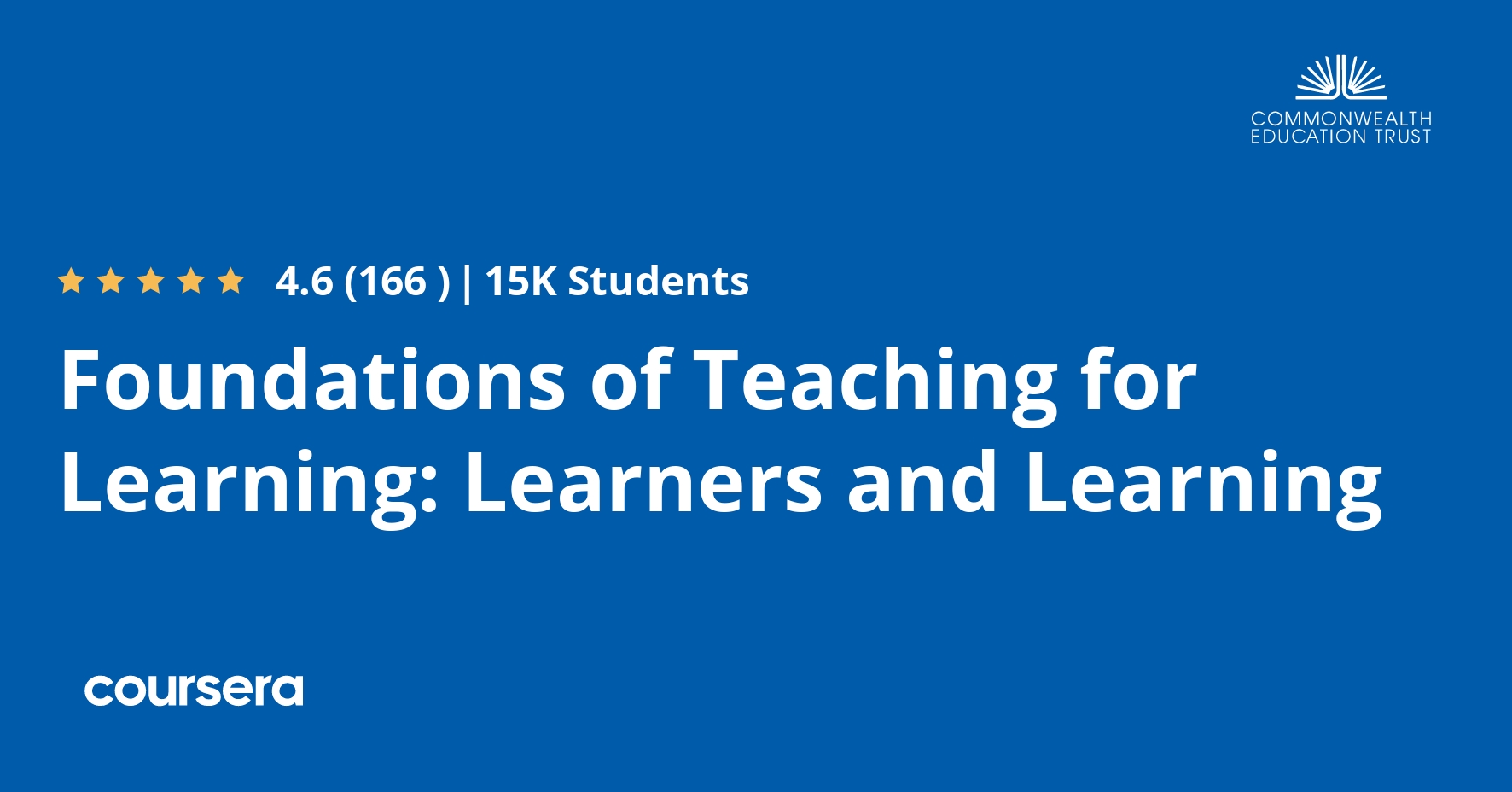Description
The Foundations of Teaching for Learning programme is for anyone who is teaching, or who would like to teach, in any subject and any context – be it at school, at home or in the workplace. With dynamic lessons taught by established and respected professionals from across the Commonwealth, this eight course programme will see you develop and strengthen your skills in teaching, professionalism, assessment, and more. As you carry on through the programme, you will find yourself strengthening not only your skills, but your connection with colleagues across the globe. A professional development opportunity not to be missed.
The teacher’s work becomes meaningful when it is informed by research and theories of learning, and their relationship to actual practice. This course provides an opportunity for you to identify and understand students’ expectations and prior learning.
Enhance your course by joining the Commonwealth teaching community on our website, Facebook and Twitter.
What you will learn
The lives of children
How much, as teachers or parents, do we understand about the lives of children and what affects their learning? How is their identity shaped, who shapes it, and in what circumstances? How many different ‘selves’ do children inhabit and how does their ‘self’ emerge in different contexts? How are boys and girls affected differently by their upbringing and the expectations we hold of them? And how do these issues play out in the multi-cultural school and classroom? We will consider these important questions in the materials this week.
How children learn
We know a lot about children’s learning, but there is a lot that we still have to learn. How important is self-confidence and self-esteem? What do we understand by ‘agency’, the confidence to take initiative, to learn for yourself and with others? In what ways do schools and teachers often discourage agency, and how may learning be fostered in the classroom and in out-of-school contexts? How can teachers take account of so many different learning needs and ‘styles’ and differentiate teaching for different individuals and groups? And how can teachers involve children in shaping rules and roles in the classroom? These are the issues discussed over the course of these four lectures.
Engaging with students
The theme for this week is ‘engaging with students’. We begin with the language of the classroom, the crucial issue of questioning how and for what purpose children are rewarded, and the use of paired and group work to engage students more actively in the lesson. We start with the question – How would you describe the nature of social interactions within: Your own classroom? Your own school? Your own country? This is a vital starting point as everything else hangs on relationships and, as discussed at the end of week two, a shared understanding of rules and roles lays the groundwork for a collaborative classroom ethos.
The power of the peer group
The four lectures this week are all related to the theme of peer groups. We look at the positive and negative effects of peer groups, including how smoking drugs and alcohol problems can affect the classroom and the school, the concerning issue of bullying, and the problems that emerge when we label students in particular ways. I encourage you to write a narrative in which you bring together a reflection on your own classroom, the relationships that peers have within it and how this impacts on your teaching. At the end of this week we are offering you the second interview between myself and Professor John MacBeath, where will discuss some of the issues that arose during weeks three and four. Also, this week, as well as the quiz, you should be starting to finalise the second peer assessment essay.








